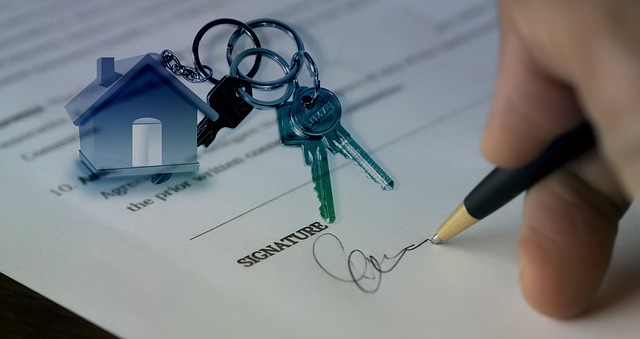Why the Right Agent Matters
Buying or selling a home isn’t just another checklist item—it’s one of the biggest financial moves most people ever make. There’s money on the line, emotion in the mix, and a dozen hidden details that can tank a deal or cost you thousands if mishandled.
That’s where the right agent comes in. A great real estate agent is more than a tour guide or paperwork pusher. They know the market inside-out, spot problems before you do, and fight to get you the best deal—whether that’s squeezing more out of an offer or landing the house before someone else does.
Good ones reduce stress by handling the chaos: showings, pricing strategy, negotiations, timelines, and closing details. They know which corners to cut—and which ones to never touch. They keep things moving, protect your interests, and communicate clearly through each step.
This isn’t just about service. It’s about impact. The right agent won’t just save you time—they can make or save you tens of thousands of dollars. That’s why who you choose isn’t a small decision. It’s the first smart move you’ll make in your real estate journey.
Know What You Actually Need
Before you even start searching for agents, figure out what you’re hiring for. Are you selling a home, buying one, or juggling both at the same time? Each comes with its own demands—and not every agent is equipped to handle them all.
If you’re relocating from out of state, your agent needs to know more than listings. They should have a sharp grasp on everything from school zones to commute patterns. Buying a fixer-upper? Look for someone who speaks fluent contractor. Selling fast in a cooling market? Negotiation chops and pricing strategy matter more than charm.
It’s not about finding the most popular agent. It’s about finding the one who fits your goals. Your situation sets the bar—pick someone with the track record and toolkit to clear it.
What to Look For in a Great Agent
Finding a real estate agent isn’t just about who has the most listings or flashiest marketing. It’s about choosing someone whose skills, communication style, and experience align with your specific needs. Here’s what to focus on when evaluating potential agents:
Local Market Expertise
The best agents understand the details of the neighborhoods you’re interested in, including:
- Comparable home prices (“comps”)
- Local school districts and their ratings
- Upcoming developments or zoning changes
- Economic factors that influence demand and pricing
Local expertise means your agent can properly price your home—or help you make a smart offer.
Communication Style
A great agent communicates in a way that works for you. Ask yourself:
- Do they respond quickly and clearly?
- Are they available through your preferred channels (calls, text, email)?
- Do they keep you informed proactively, not just when you follow up?
Miscommunication can cost both time and money—so make sure you’re compatible.
Strong Negotiation Skills
Real estate transactions involve a lot of back-and-forth. A skilled negotiator can:
- Help you win in competitive bidding situations
- Maximize your sale price without scaring away buyers
- Navigate inspection issues and contract terms to your advantage
Ask for specific examples of wins they’ve delivered for clients in the past.
Transparent Fee Structure
No one likes surprise fees. A trustworthy agent is upfront about:
- Commission percentages
- Brokerage fees
- What’s covered in their services versus what’s extra
Make sure everything is clear in the contract before you sign.
Proven Track Record
Past performance is the best indicator of future results. Look for:
- Positive client testimonials and references you can contact
- A portfolio of recent sales in markets similar to yours
- A consistent pattern of closed deals and satisfied clients
Choosing the right agent requires more than just a gut feeling—dig into the details to ensure you’re making the most informed decision possible.
Red Flags You Shouldn’t Overlook
Not every agent who sounds confident is right for the job. In fact, some signs of a bad fit can show up early—if you know what to watch for. Choosing the wrong person could mean losing time, money, or peace of mind.
Signs It’s Time to Walk Away
Be alert for these common warning signs. If even one or two show up, take a step back and reassess.
- Pushy advice without data
An agent should back up their suggestions with real numbers—recent comps, market trends, or pricing data. If they rely only on gut feeling or pressure tactics, you deserve better.
- Poor track record or no recent sales
You want someone active and experienced. If they haven’t closed deals recently, that could be a red flag. Ask for a list of transactions from the past 6–12 months.
- Vague answers to simple questions
Transparency matters. If they dodge questions about fees, strategy, or process—or answer in generalities without specifics—they may not be confident or organized.
- Overpromising without substance
Be cautious of agents who guarantee top-dollar sales or quick closings without explaining how they’ll get you there. Look for plans, not just promises.
- Difficult to reach or slow to respond
Responsiveness is key in real estate, where timing can make or break a deal. If they’re slow during the interview process, it may get worse once things are in motion.
Trust Your Instincts (and the Facts)
It’s okay to walk away and keep looking. A strong agent doesn’t just talk a good game—they listen well, share useful insights, and make you feel like a priority. If you’re second-guessing too much early on, that’s usually a sign to keep searching.
Where to Find the Right Agent
Start close to home. Word-of-mouth still matters. Ask your friends, family, co-workers, and neighbors if they’ve had a good (or bad) experience with an agent. Personal referrals can cut through the noise and land you someone who’s already been vetted in real-world situations.
Next up: online platforms. But not just any – stick to ones that are known and respected. Look for verified reviews, recent sales history, and any specializations. Many local directories now filter out inactive agents or those with spotty records, so use that to your advantage.
And don’t underestimate old-school legwork. Pop into open houses. It’s a no-pressure way to see agents in action, observe how they operate, and get a feel for their style. You’ll learn more watching them interact with strangers than you would over a scripted phone call.
For more tools, tips, and ways to dig deeper, check out HouseZoneSpot.
Interview Like You Mean It
Before you shake hands or sign on any dotted lines, have your questions lined up. This isn’t about being confrontational—it’s about clarity and fit. Ask each agent how many clients they’re working with right now. If they’re juggling a dozen active deals, your home might slip through the cracks.
Next up: strategy. Push them to be specific. How do they plan to help you close quickly—or get top dollar? Vague hype doesn’t cut it. Look for actionable game plans with evidence to back them up.
Communication style might seem minor, but it matters. Are they texting you updates? Scheduled weekly calls? Quick responses or radio silence? Set the tone now so you’re not chasing them down later.
Most importantly, interview more than one. Talking to two or three agents gives you perspective. You’ll see who’s phoning it in and who’s ready to work. Don’t rush this part. The right agent won’t just save you time—they’ll save you stress and money too.
Final Checklist Before You Decide
Before you sign on the dotted line, take a honest, no-fluff look at how well this agent actually gets you. Do they understand what matters most? Your must-haves shouldn’t surprise them, and your deal breakers should already be hardwired into their search or strategy. This person isn’t just helping you transact—they should be helping you avoid regret.
Clarity is non-negotiable. The real estate process is busy, often chaotic. A great agent walks you through it all: timelines, showings, contingencies, paperwork, and how the money flows. If they’re breezing past those pieces, that’s a red flag.
Maybe most important: do you trust them? In the crunch moments—when emotions run high, tough calls show up, or last-minute offers hit—you need someone who’ll advocate like it’s their own deal. If you’re feeling even slightly unsure, ask more questions. And if their answers don’t sit right, keep looking.
Bottom Line
Choosing a real estate agent isn’t just about a good first impression—it’s about making a smart decision that supports one of the biggest financial and emotional commitments you’ll make. Here’s what matters most as you wrap up your search:
Why It Matters
- The right agent can lead to better results, faster transactions, and less stress.
- The wrong agent can leave money on the table or create unnecessary complications.
Trust Your Instincts—But Verify
- Don’t ignore your gut feeling. If an agent seems disinterested or overly slick, they probably aren’t the right fit.
- Make sure your instincts are supported by facts:
- Have you checked their reviews?
- Did you speak to past clients?
- Is their local market knowledge up to date?
It’s a Real Partnership
Working with a real estate agent is a unique kind of partnership—it may span weeks or even months.
Ask yourself:
- Can you communicate openly and clearly with them?
- Do they respond quickly and follow through on their promises?
- Do they seem committed to understanding—and protecting—your interests?
Final Advice
- Don’t settle because the process feels urgent. An extra few days to find the right agent can lead to better outcomes.
- Stay informed. Know what you want, ask the right questions, and hold your agent to a high standard.
At the end of the day, the right agent doesn’t just help you buy or sell a property—they help you make smarter decisions and feel confident every step of the way.


 Gregory Martindalerons is a dedicated technology author at HouseZoneSpot bringing readers the latest updates on home automation, AI integration, and futuristic living solutions. His clear and engaging approach helps readers stay ahead in the evolving world of smart technology.
Gregory Martindalerons is a dedicated technology author at HouseZoneSpot bringing readers the latest updates on home automation, AI integration, and futuristic living solutions. His clear and engaging approach helps readers stay ahead in the evolving world of smart technology.

